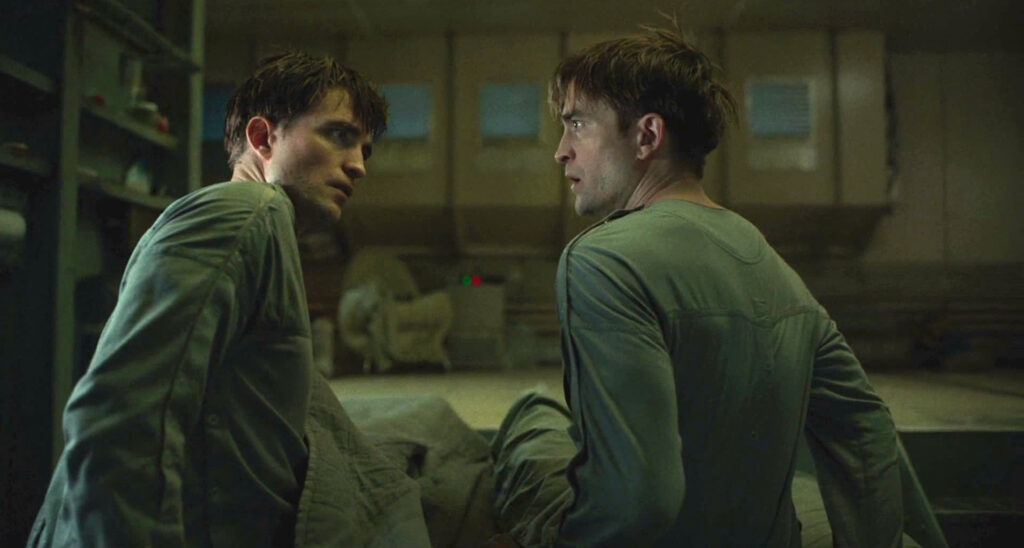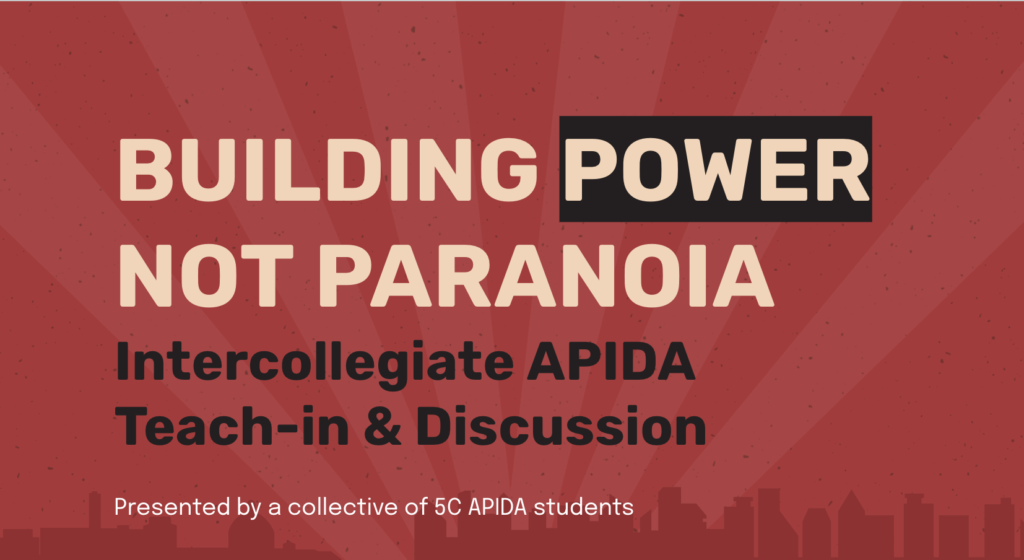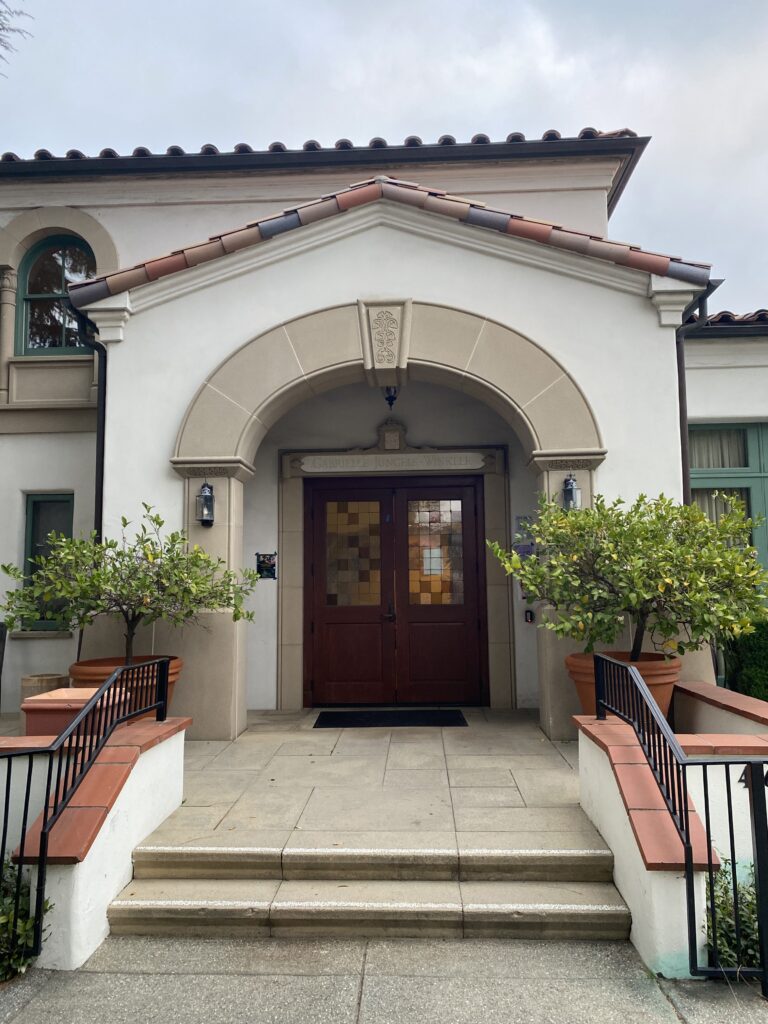Aviva Vic Maxon ’24
Staff Writer
The required senior thesis is the culmination of our learning at Scripps. The thesis is written over one or two semesters and utilizes many skills a Scrippsie learned during their college experience. With so many theses produced every semester, many of them go unnoticed and underappreciated.
The following Q&As highlight four thesis projects from the class of 2024: Anaís Martínez Castañeda ’24, double majoring in anthropology and Chicanx/Latinx studies; Aidan Trulove ’24, majoring in English with a creative writing emphasis; Carolina Gutierrez-Tunstad ’24, majoring in Russian and Eastern European studies; and Taylor Tsiamas ’24, majoring in theater.
The Scripps Voice (TSV): Tell me about your project.
Anaís Martínez Castañeda (AMC): For my anthropology topic, I’m exploring how young Latinx women experience their relationships with cultural foods and how that forms their connections with family and cultural identity, and how that’s been threatened by social media’s pressures of diet culture and thinness. It also affects their perception of cultural identities and their mental, emotional, and physical health in general as well. It’s a lot of the difficult experiences that young Latinx women endure, and I wanted to also have a little bit more of a positive reflection on why it’s so important to have these foods so connected to our cultural identity. For my Chicanx/Latinx senior project, I’m leading a memory activity with a group of young Latinx women through art to allow them to be able to reflect on their own intimate experiences engaging with Latinx culinary practices. And then in April, I’m going to show a gallery based on the art activity that they’re doing and they’re also going to take some photographs. That’s going to be showing in The Motley in collaboration with Café Con Leche.
Aidan Trulove (AT): I’m doing a short story collection of three different pieces. The first piece is told in first person, the second piece is told in the second person, the third in third person. They all kind of fall in with fantasy but they all have a very different vibe — like the first one is about the maid of an old vampire family. The second one is about a killer magazine quiz, and the third one is about a character who experiences disability and how that’s perceived by the people around them to be something more magical and strange than it actually is.
Carolina Gutierrez-Tunstad (CG): It’s a deep dive into identity and queer life in the post-Soviet world. And then I dedicated an entire chapter to the Ukrainian drag queen who competed in Eurovision in 2007 because I felt like she just needed that. I was basically just doing research by combing through archives and stuff like that.
Taylor Tsiamas (TT): It’s a year-long project, and I’ve just been trying to formulate what I want it to look like, since it’s like being made from scratch. There’s a lot of just planning that has to go into it. You know, just planning logistics of where it’s going to be, what it’s going to look like and then also content. So these past couple semesters, I’ve developed an outline of everything I want to go first and then I’m gonna write the script.
TSV: How did you choose your topic?
AMC: This is something that’s kind of stemmed from personal experience with me, just navigating the difficulties of the expectations of thinness on social media and balancing that with my cultural foods. I also wanted to explore how that fits into this idea of clean eating and healthy eating.
AT: I originally wanted to go with a much longer project, but I realized that I really just wanted to talk about my writing and what its strengths are. And the strongest thing about my writing is my narrator. Whether it’s in first person, second person, third person, the thing that people always take away from my work is that there’s someone talking to them. And whether they particularly like that person or not, they always find them very interesting.
CG: I basically just wanted to shoehorn my own interests into my thesis, which, let’s be real, that’s all academic research is — it’s just making things fun. At least that’s how I’ve approached it. And I decided, wouldn’t this be a great way to be able to cite RuPaul’s Drag Race in an actual published paper?
TT: Well, the other path I couldn’t really do because of accessibility reasons. Like I can’t do any of the mainstage productions, which is what most people do. So then I had to do a devised project. When I was doing that, I was like, oh, okay, well, since I wasn’t able to do the mainstage stuff because of accessibility reasons I will theme my thesis on accessibility. Also, I just wanted to think about how Western theater is constructed and how it’s very much like the audience sits in the dark in these rows of seats that are quiet while the performers take the stage and I wanted to kind of like deconstruct that.
TSV: What is something you have learned through this process?
AMC: Before I really started researching this, I definitely considered academia as something that you kind of have a distance from in terms of research. I felt like [you have to have] the smallest bias possible for it to be considered valuable or credible research. But I feel like since this kind of stems from personal experience, and also just such intimate experiences through interviews, I think I realized that it’s important to have these positionalities, not only be anti-colonial in the sense of including these personal experiences of marginalized women, but I think it’s also very healing to have these stories and personal experiences in academia. That’s something that’s really transformed my view of research since entering college.
AT: I’ve learned that I am much more stubborn with my work than I thought I was. Once I kind of latch on to my idea, it’s very hard for me to switch directions. But the feedback I’ve gotten from my two readers has been very helpful so far, and I’m learning to be able to show my work to other people without being scared or nervous that they’re gonna hate it.
CG: It’s very important to have to find a good thesis advisor because admin is going to try to, you know … kneecap you at every available opportunity. So you have to really have a good professor who’s going to help you because nobody else will.
TT: Do something that you like, do something that you actually feel passionate about because you’re gonna be stuck doing it every day for like, a whole semester or two semesters, so definitely something that piques your interest and not just something you feel like you could do.
Interviews were edited for length and clarity. Part two is forthcoming.




